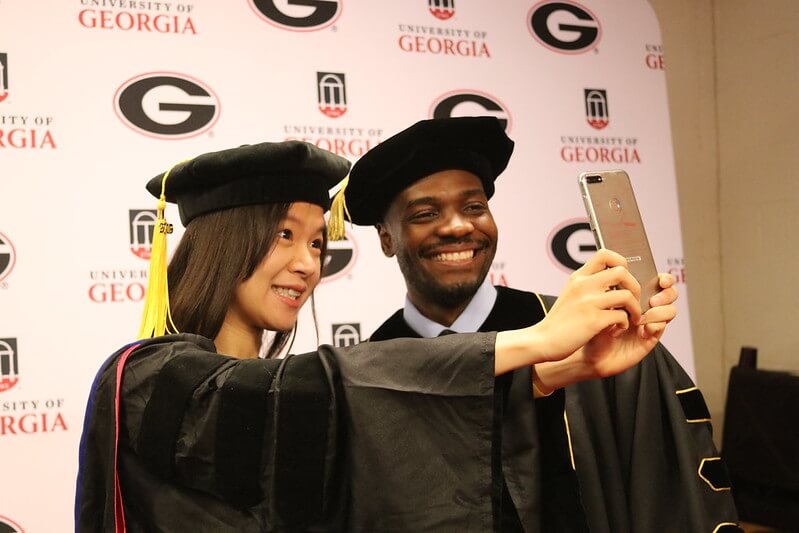
International graduate students help universities build robust intercultural education systems, increase globalized research, and provide innovative perspectives to research problems. To recruit and train successful scholars in a competitive global education market, colleges of agriculture at land grant universities need to know how to best communicate with prospective graduate students – both internationally and within the U.S.
In a recent article published in the Journal of Applied Communications, authors Allison Byrd, Dr. Katie Sanders, and Dr. Alexa Lamm explored the top communication tools used by both U.S. and international students when searching for an agricultural graduate program.
Because there has been little previous research on this topic, the researchers wanted an in-depth understanding of graduate student experiences when they were selecting a university to pursue their graduate degree. The researchers conducted 19 one-on-one interviews with 10 U.S. students and 9 international students about their communication experiences.
The authors identified all international students as collectivists based on their countries of origin. Students from collectivist cultures read journal articles to identify mutual research interests with potential faculty advisors or committee members. Additionally, students from collectivist cultures used social media to keep up to date on university happenings while also reaching out to current students to gain unbiased insights on the international student experience at any university.
All students born in the U.S. were classified as individualists. They listed influential communication tools as in-person visits and interpersonal communication with faculty based on existing relationships, showing the relationship-building aspects of university recruitment were influential in their institutional choice.
Both groups of students tended to use emails to form relationships with faculty advisors. At the same time, they would search for information about departments and labs to see if they would fit in on departmental and lab websites. This means departments should focus on keeping current information on their websites while encouraging faculty to create or maintain lab websites to attract new students.
The research team hopes the insights from this study’s findings, outlined at length in the full article, will help direct university departments in their communication efforts. Allison Byrd also aspires to expand on these findings through her dissertation work, in which she is taking the study findings and applying them to a nationwide survey of graduate students at land grant universities.
This article was initially presented at the 2023 Association for Communication Excellence Conference in Asheville, NC, where Lamm Lab members shared various science communication research topics during the summer of 2023.
To learn more about the present study and its implications, read the full article here.